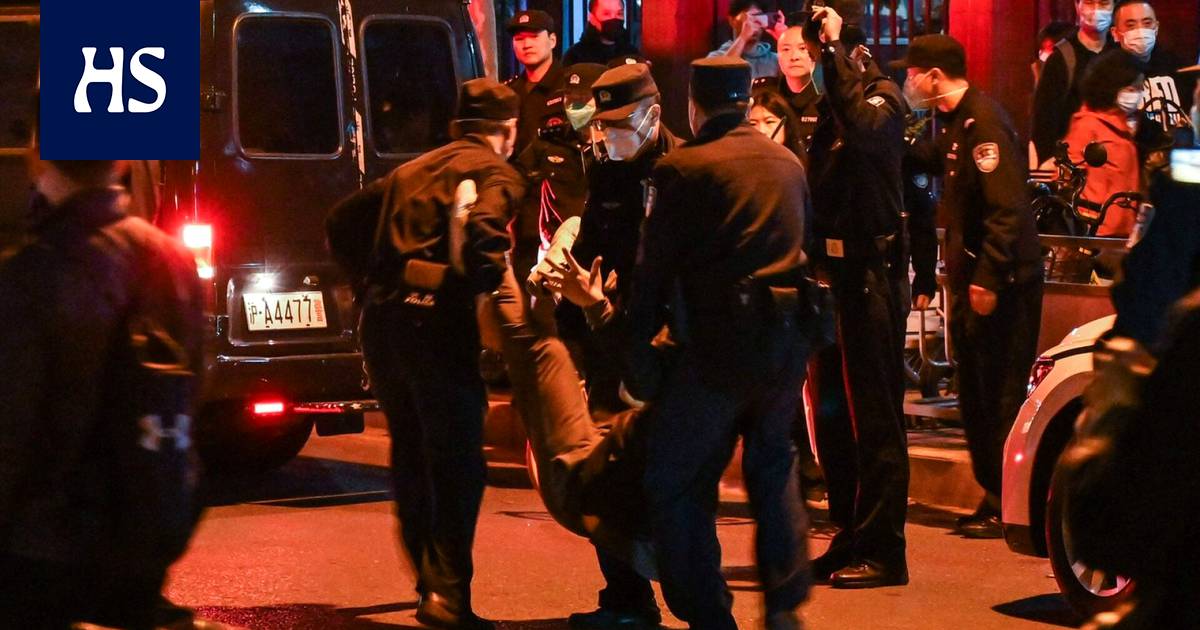Rare demonstrations against the strict coronavirus policy have broken out in China. Thousands of people have protested across the country.
China’s The journalist of the British broadcasting company BBC, who reported on the corona protests, was arrested in Shanghai, said BBC early Monday. Supplier Ed Lawrence was detained for several hours before being released.
The BBC says that it is extremely concerned about what happened and that the reporter was arrested while doing his job as an accredited journalist. According to the BBC, Lawrence was punched and kicked during the arrest and handcuffed.
According to the BBC, the Chinese authorities have not given a credible explanation for the journalist’s arrest, nor have they apologized.
China’s foreign ministry says local authorities say Lawrence did not identify himself as a journalist and did not voluntarily provide his press credentials.
Britain’s of the prime minister Rishi Sunakin according to the spokesman, the arrest was “shocking, and it cannot be forgiven”, the news agency Reuters reports. According to the spokesman, Britain intends to highlight China’s actions to suppress the protests in its discussions.
“We will continue to raise our human rights concerns with all levels of the Chinese government as part of our frank and constructive relationship.”
“The arrest of a journalist who is doing his job is shocking and unacceptable. Journalists must be able to carry out their duties without intimidation.”
Britain’s Minister of Economic Affairs Grant Shapps called the actions of the Chinese police worrying and unacceptable in a radio interview on Monday.
During the end of the week, rare demonstrations broke out in China against the country’s strict corona policy. In the demonstrations that have spread to China’s largest cities, the president has also been demanded in some places Xi Jinping break up.
Read more: How long will Xi look past the protests?
Large demonstrations are exceptional in China.
“I haven’t seen protests of this scale in Shanghai in the 15 years I’ve lived here,” said a local resident Frank Tsai For the BBC in Shanghai, where thousands demonstrated over the weekend.
On Monday morning In Shanghai, fences had been brought to the protest area and there was a large police presence to prevent further protests.
On Monday, the Chinese police arrested at least three people at the protest site, AFP reporters say. When asked the reason for one of the arrests, the police said that the arrested person “did not obey our arrangements”.
AFP reporters saw several arrests on Sunday evening as well. Shanghai police have not responded to the news agency’s questions about how many people have been arrested.
A planned protest in Beijing withered before it started when dozens of police officers and police cars blocked an intersection near the planned rallying point in the Haidian district. The police arrested a single protester who had hung banners criticizing Xi on the Sitong Bridge.
The demonstrations have not been shown in the media controlled by the Chinese government.
Read more: The Chinese media do not show the protests in any way
China has been the last country in the world to adhere to a strict zero-corona line. The strict line has kept the number of coronavirus deaths in China relatively low, but has required continuous strict lockdown measures and made citizens’ daily lives unpredictable.
There is no end in sight to the spiral of restrictions, as it seems impossible to suppress the highly contagious omicron mutation even with China’s strict measures. President Xi also seems to have put his prestige on the line for the zero corona line.
The Chinese Foreign Ministry assured on Monday that it believes in the success of the administration’s fight against the corona virus.
in China record numbers of coronavirus infections have been reported in recent days, despite strict restrictions. The vaccination rate of the elderly in China is quite low, and the domestic coronavirus vaccines used are not believed to be as effective as Western vaccines.
In recent days, the anger at corona measures has been increased by the fire in a residential building in the city of Ürümq in Xinjiang, which claimed ten lives on Thursday. Information has circulated on social media, according to which Ürümq’s strict corona lockdowns hindered rescue operations. Officials have denied this.
On Monday, the Chinese Foreign Ministry accused “social media forces with ulterior motives” of connecting the fire with corona measures.
The authorities said on Monday that the coronavirus restrictions in Ürümq will be relaxed at least partially: even residents who have been ordered to their homes for weeks will be allowed to travel by bus to their residential areas from Tuesday.
On Sunday, officials announced that certain essential businesses in low-risk areas could apply to restart operations at limited capacity.
